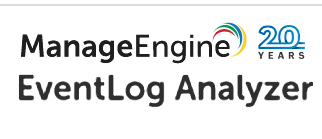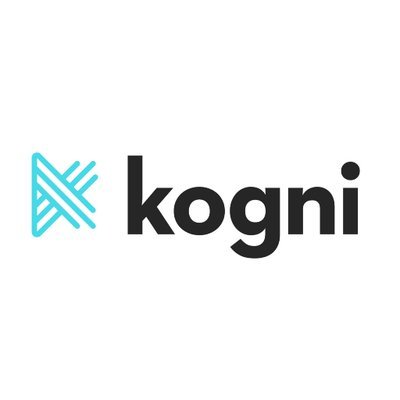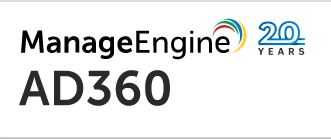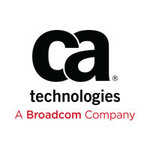Yes, PCI compliance software can be accessible from various devices and platforms. Cloud-based solutions allow users to access software from any internet-connected device, such as desktop computers, laptops, tablets, and smartphones. The software is designed to work with a variety of platforms, including Windows, Mac, Android, and iOS, allowing users to access and handle compliance duties from any device. This flexibility allows firms to easily manage compliance, even when their staff work remotely.
List of 20 Best PCI Compliance Software
ManageEngine EventLog Analyzer is a log management solution designed for businesses of all sizes and industries. Choose between agent-based or agentless log collection, parsing, and archiving, all available on a user-friendly on-premise platform. Sim...Read More ManageEngine EventLog Analyzer
SecurityMetrics is an innovative cybersecurity software that offers a wide range of solutions for businesses to enhance their compliance and protect their data. Our cutting-edge tools, including the Shopping Cart Monitor, assist in accomplishing PCI...Read More SecurityMetrics
SmartSAQ is a compliance management software for businesses. With user-friendly navigation and instant feedback, SmartSAQ simplifies the compliance process and ensures adherence to industry standards. Get rid of complicated and time-consuming tasks w...Read More SmartSAQ
Tripwire is a cybersecurity solution that ensures the safety of your organization. Our advanced technology, including file integrity monitoring and security configuration tools, offers real-time threat detection and compliance management. With Tripwi...Read More Tripwire
A Cloud-Based Tokenization software, a reliable and secure solution that replaces sensitive payment data with tokens. With this innovative tool, you can reduce PCI compliance scope by up to 90% while enjoying increased payment flexibility and reduced...Read More Cloud-Based Tokenization
OUTSCAN PCI is a compliance solution for enhancing PCI DSS vulnerability scanning processes. Equipped with robust features, this tool enables businesses to meet regulatory standards and simplify their scanning procedures with ease. With OUTSCAN PCI,...Read More OUTSCAN PCI
Thales, a complete cybersecurity solution designed to protect your sensitive information and simplify access management. With advanced encryption, passwordless authentication, and strong data protection, Thales empowers organizations to confidently p...Read More Thales
Kogni, a software designed to safeguard your sensitive data across all your business data sources. Its robust security features and constant monitoring make it the go-to choice for businesses of all sizes, from small and medium enterprises to Fortune...Read More Kogni
AlienVault USM - the leading security management software trusted by businesses worldwide. With its unified platform, real-time monitoring, auto-alerts, and comprehensive reporting, it offers unmatched threat detection, incident response, and complia...Read More AlienVault USM
Cryptosense is a cryptography management platform engineered by SandboxAQ. This innovative solution offers continuous inventory management, encryption remediation, and supervised enforcement to fortify IT infrastructures against present and emerging...Read More Cryptosense
Upgrade your compliance game with Akitra - the premier multi-framework platform. With smooth compatibility for SOC 1, SOC 2, HIPAA, ISO 27001, NIST 800-53, PCI DSS, and GDPR, our patented AI technology streamlines your adherence. Save time, reduce co...Read More Akitra
HelpSystems is a digital signature software that simplifies the process of collecting electronic signatures. Compatible with Windows-enabled signature pads, tablet PCs, and mobile apps, this solution empowers businesses to efficiently sign all types...Read More HelpSystems
ManageEngine AD360 - your all-in-one solution for identity and access management (IAM). AD360 is a robust platform that helps organizations effectively handle user identities, ensure compliance, and secure resources. Its comprehensive features enable...Read More ManageEngine AD360
Veracode PCI Compliance is a software designed for Enterprises, SMEs, and StartUps to ensure complete compliance with PCI regulations for Web App and Android. Our platform simplifies the entire compliance process, making it easier for businesses to m...Read More Veracode PCI Compliance
SanerNow IT Asset Management is a platform that combines endpoint security and management tools to cater to all the needs of your organization. It proactively detects and resolves system irregularities through system queries, ensuring the smooth func...Read More SecPod's SanerNow IT Asset Management
ManageEngine ADAudit Plus is a auditing solution for Active Directory. With real-time tracking and comprehensive reports, it strengthens security measures by detecting changes made in AD. Its automatic alerts and compliance management capabilities e...Read More ManageEngine ADAudit Plus
Choose Fortify1 as your all-encompassing cybersecurity solution. Our intuitive platform streamlines compliance and threat management, saving you valuable time and resources. With our comprehensive suite of tools, your organization will have continuou...Read More Fortify1
Netwrix is a server monitoring software that simplifies the process of configuring crucial settings and maintaining strong security protocols. It offers continuous monitoring and delivers valuable insights to help improve productivity. With Netwrix,...Read More Netwrix
Spreedly is a payment orchestration platform designed to facilitate global growth for companies. With its advanced API integration with more than 200 partner services, Spreedly simplifies transactions, provides enhanced flexibility, and ensures PCI c...Read More Spreedly
Trustwave is a leading cybersecurity solution that offers advanced threat detection and response capabilities. Their team of experts and advanced technologies provide 24/7 protection for hybrid environments, ensuring comprehensive security against cy...Read More Trustwave
Learn More About PCI Compliance Software
- What Is PCI Compliance Software?
- What Are The Recent Trends In PCI Compliance Software?
- Benefits Of Using PCI Compliance Software
- Important Factors To Consider While Purchasing PCI Compliance Software?
- What Are The Key Features To Look For In PCI Compliance Software?
- Why Do Businesses Need PCI Compliance Software?
- How Much Time Is Required To Implement PCI Compliance Software?
- What Is The Level Of Customization Available In PCI Compliance Software?
- Which Industries Can Benefit The Most From PCI Compliance Software?
- Conclusion
What Is PCI Compliance Software?
PCI Compliance Software is specialist software that assists organizations in meeting the Payment Card Industry protection regulations Council's (PCI SSC) regulations for cardholder data protection. It is an important tool for any firm that processes credit card information since it protects sensitive consumer data and prevents data breaches.
This software works by doing extensive security evaluations and scans to uncover system vulnerabilities that could be exploited by cybercriminals. It also assists firms in implementing security measures such as encryption, firewalls, and access controls to protect critical information. One of the primary goals of PCI Compliance Software is to help businesses achieve and maintain compliance with the Payment Card Industry Data Security Standards (PCI DSS).
These standards are a set of guidelines that all firms that handle credit card information must follow in order to protect consumer data. This software not only ensures PCI DSS compliance, but it also assists businesses in avoiding large fines and penalties levied by credit card issuers and regulatory bodies in the event of a data breach.
It also gives businesses peace of mind knowing that their customers' sensitive data is secure, resulting in increased consumer trust and loyalty. When shopping for PCI Compliance Software, it is critical to evaluate features such as vulnerability screening, data encryption, and access controls to guarantee cardholder data is fully protected. To stay up with the ever-changing cybersecurity scene, seek for software that is updated on a regular basis.
What Are The Recent Trends In PCI Compliance Software?
In recent years, the use of PCI compliance software has grown in popularity as businesses struggle to protect their customers' sensitive data while remaining compliant with industry requirements. As technology advances and cyber dangers increase, numerous important patterns emerge in the field of PCI compliance software. These trends should be considered while evaluating potential business solutions.
A notable trend in PCI compliance software is the shift to cloud-based solutions. With the advent of remote work and the demand for safe data storage, many firms are choosing cloud-based software over traditional on-premise solutions. Cloud-based PCI compliance software enables easy access and control of sensitive data from any location, while also providing enhanced security features such as data encryption and automatic updates.
Another trend worth noting is the incorporation of artificial intelligence (AI) and machine learning (ML) into compliance software. This technology can evaluate enormous amounts of data and identify potential dangers, allowing firms to better manage their compliance responsibilities. AI and machine learning can also automate processes, lowering the risk of human error and freeing up important time for compliance teams to work on more difficult duties. Furthermore, several PCI compliance software vendors are now providing more comprehensive functionality than just basic compliance management.
This includes capabilities like risk assessment, penetration testing, and vulnerability scanning, which can assist firms in proactively identifying and responding to possible security threats. Finally, there is an increasing emphasis on user-friendly interfaces and efficient processes in PCI compliance software. This is in reaction to the growing complexity of compliance rules, as well as the necessity for organizations to handle them efficiently and effectively. User-friendly software can help ease the pressure on compliance personnel while increasing overall productivity.
Benefits Of Using PCI Compliance Software
PCI compliance software is an essential tool for businesses of all sizes in protecting their customers' sensitive credit card information. This sort of software assists businesses in adhering to the Payment Card Industry Security norms Council (PCI SSC) norms and regulations, which assure the security of credit and debit card transactions. But what are the advantages of adopting PCI compliance software?
Let's have a closer look.
1. Ensures Compliance: One of the most major advantages of adopting PCI compliance software is that it enables organizations to achieve and maintain compliance with the most recent industry standards. Compliance is not only a legal obligation; it is also crucial for establishing customer trust. Noncompliance might result in significant fines and reputational damage. Businesses can use PCI compliance software to organize and track their compliance efforts more efficiently, lowering the risk of noncompliance.
2. Improves Security: Another key benefit of using PCI compliance software is that it helps to improve the security of credit card information. With data breaches on the rise, businesses must take precautions to protect their customers' sensitive information. PCI compliance software includes capabilities including data encryption, network segmentation, and vulnerability screening to protect against potential cyber threats.
3. Reduces Risk: Using PCI compliance software can dramatically reduce the likelihood of data breaches and the resulting financial and reputational damage. Businesses that follow the PCI SSC requirements can detect and fix any vulnerabilities in their systems and processes. This preventive approach can help avoid data breaches and spare a corporation from severe legal and financial penalties.
4. Streamlines Operations: PCI compliance software can assist streamline and automate numerous manual operations associated with obtaining and maintaining compliance. This not only saves time and resources, but also lowers the possibility of human error. Businesses that implement streamlined processes can efficiently manage their compliance efforts while focusing on other vital parts of their operations.
5. Peace Of Mind: Finally, employing PCI compliance software can provide businesses with peace of mind by ensuring that their customers' payment card information is secure. Compliance with industry standards shows a company's commitment to data security and instills trust in its consumers. This trust leads to loyal customers and a positive brand reputation.
Important Factors To Consider While Purchasing PCI Compliance Software?
1. Cost: One of the most important elements to consider when selecting PCI compliance software is the cost. It is critical to consider not only the initial purchase price, but also any additional costs, such as maintenance or membership fees. Consider your budget and examine several possibilities to find the greatest answer for your money.
2. Features And Functionality: Prior to purchasing PCI compliance software, it is critical to evaluate its features and functionality. Look for features that address your specific compliance demands and standards. Some important features to consider are customized security settings, real-time monitoring, and automated compliance reporting.
3. Integration: The PCI compliance software you choose should work easily with your current systems and processes. Integration not only saves time and effort, but it also results in a more efficient and streamlined compliance procedure. Consider systems that provide seamless integration with your network, devices, and apps.
4. Flexibility And Scalability: Because your company's needs and compliance requirements may change over time, you must select a software solution that is both flexible and scalable. Look for solutions that may be adjusted to meet your changing needs without requiring a total overhaul or incurring significant additional costs.
5. User-Friendliness: When selecting PCI compliance software, you must examine its ease of use and user-friendliness. The system's interface should be straightforward and user-friendly, allowing non-technical people to browse and manage compliance activities efficiently.
6. Customer Help: In the event of an issue or a question, dependable customer help is critical to ensuring a smooth compliance procedure. Look for PCI compliance software suppliers who give 24-hour customer assistance through numerous channels, such as phone, email, or live chat.
7. Reputation And Reviews: Before making a purchase, it is a good idea to examine the PCI compliance software provider's reputation and customer reviews. Online user reviews and ratings can provide vital insights into the software's general satisfaction and efficacy.
8. Level Of Automation: Manual compliance processes are time-consuming and prone to errors. It is critical to select a solution with a high level of automation to expedite tasks and limit the danger of human error.
9. Training And Support: Because your staff will be utilizing PCI compliance software, it is critical to examine the training and support given by the software vendor. Look for solutions that include user training and adequate onboarding to ensure a smooth implementation and use.
10. Future Compatibility: Finally, think about how the PCI compliance software will function in the future. As compliance requirements and technologies grow, it is critical to select a solution that can adapt and remain compliant in order to prevent frequent software updates.
What Are The Key Features To Look For In PCI Compliance Software?
In today's digital world, protecting sensitive financial information is critical for organizations of all sizes. This is where PCI compliance software comes into play, assisting firms in meeting the Payment Card Industry Data Security Standard's (PCI DSS) strict security requirements. However, with so many alternatives available, how can you select the best PCI compliance software for your business?
The following are the essential features you should look for:
1. Comprehensive Security Measures: Your PCI compliance software should provide end-to-end protection to safeguard your data against potential breaches. This covers functions like data encryption, firewalls, intrusion detection and prevention, and vulnerability screening.
2. Customizable Reporting And Alerts: Your software should provide detailed reports and send you real-time alerts to keep you up to current on your compliance status. This will allow you to detect any vulnerabilities and take prompt action to remedy them.
3. Integration Capabilities: Ensure that the software integrates seamlessly with your current systems and processes. This not only saves time and resources, but it also reduces the likelihood of errors and inconsistencies.
4. User-Friendly Interface: An easy-to-use interface will help your staff explore and use the program more effectively. Look for PCI compliance software with a simple and user-friendly interface, as well as customized dashboards that provide an overview of your compliance status.
5. Continuous Support And Updates: Data security is a dynamic field, and your software should react to new compliance needs. Look for a provider who provides continuing support and regular upgrades to keep your software up to date.
6. Scalability: As your organization expands, your compliance requirements will grow. Thus, it is critical to select software that can scale with your company and allow future expansions.
7. Compliance Consultation Services: Some PCI compliance software vendors give consulting services to help you negotiate the complexity of PCI DSS standards. This is especially useful for organizations with little resources or expertise in data security.
Why Do Businesses Need PCI Compliance Software?
Businesses require PCI compliance software to ensure that they adhere to the Payment Card Industry's (PCI) guidelines and regulations. This is critical for firms that handle sensitive credit card information, as noncompliance can result in significant fines, penalties, and reputational harm. First and foremost, PCI compliance software enables firms to comply with the PCI Data Security Standard (PCI DSS).
This is a collection of security standards intended to safeguard cardholder data and prevent fraud. Businesses can protect their customers' sensitive payment information by implementing the PCI DSS's required security measures. Furthermore, PCI compliance software enables firms to continuously check their systems for vulnerabilities that could lead to a data breach.
This includes conducting frequent vulnerability checks, segmenting the network, and implementing access control measures. Businesses can lessen the risk of a costly data breach by remaining vigilant against potential security risks. Furthermore, PCI compliance software enables organizations to expedite their compliance operations.
Businesses can simply assess their compliance progress and find areas for improvement thanks to features like automated data collecting, real-time reporting, and configurable dashboards. This saves time and costs over manual compliance efforts. In addition to ensuring compliance, PCI compliance software can help organizations gain customer trust. Businesses can build customer trust and reputation by proving their commitment to preserving sensitive information.
Overall, PCI compliance software is a necessary tool for firms that handle credit card data. It enables them to comply industry rules, secure sensitive data, streamline compliance operations, and create consumer trust. Businesses may secure their reputation and financial transactions by investing in reputable PCI compliance software.
How Much Time Is Required To Implement PCI Compliance Software?
The time required to implement PCI compliance software varies depending on several factors, including the organization's size, the complexity of its infrastructure, and the level of compliance required. A conventional implementation can take anything between a few weeks and several months. The first step in adopting PCI compliance software is to conduct a thorough review of the organization's current security procedures and identify any gaps that must be addressed.
This can take many weeks to complete, depending on the size of the company. After the assessment, the next stage is to setup and adapt the program to meet the organization's specific requirements. This can take anything from a few weeks to many months, depending on the complexity of the organization's architecture.
After the software has been configured, the following step is to train personnel so that they grasp the new security rules and processes. This may take many weeks, depending on the number of employees and their degree of comprehension. Finally, the software must be tested and connected with the organization's current systems and processes.
This can take anywhere from a few weeks to a few months, depending on how complex the integration process is. Overall, the time it takes to establish PCI compliance software can range from four to six weeks for smaller businesses to several months for bigger and more complex ones. It is critical to remember that the implementation process is not a one-time event and will require ongoing maintenance and upgrades to ensure continued compliance.
What Is The Level Of Customization Available In PCI Compliance Software?
When it comes to PCI compliance, one solution does not suit all. When it comes to safeguarding sensitive consumer data and satisfying compliance regulations, each organization has its own set of obligations. That is why it is critical to use PCI compliance software that provides a high level of customisation. Customization possibilities in PCI compliance software vary, but often include the ability to set security policies, user access levels, and reporting features.
Some software may also provide customisation for specialized businesses or regulatory requirements, such as healthcare or financial services. Customization includes the option to modify the program to your own company procedures. This may include integrating the software with current systems or automating specific processes to improve efficiency and accuracy.
Another factor to consider is the ability to scale the software as your firm grows or evolves. This may include adding new users, expanding to multiple locations, or using new technology. Furthermore, the extent of customization in PCI compliance software might impact the user interface and overall user experience.
A well-designed and configurable software can make it easier for your team to navigate and utilize, resulting in time savings and less errors. Overall, it is critical to thoroughly assess the level of flexibility available in various PCI compliance software solutions before selecting the one that best meets your business requirements. Investing in highly customisable software can help you achieve and maintain compliance while also providing a bespoke answer to your specific business needs.
Which Industries Can Benefit The Most From PCI Compliance Software?
The Payment Card Industry Data Security Standard (PCI DSS) was established to safeguard customer payment information and prevent fraud and data breaches. In today's digital world, businesses of all sizes that handle credit and debit card data must comply with PCI DSS. This is where PCI compliance software comes in to assist businesses fulfill the PCI Security Standards Council's strict criteria. While all payment-related industries must comply with PCI DSS, some can benefit more from utilizing PCI compliance software than others.
The following industries stand to benefit the most from using a PCI compliance software solution.
1. Retail And E-commerce: Companies in the retail and e-commerce industries process a large number of credit and debit card transactions on a daily basis. This makes them an ideal target for cybercriminals. By investing in PCI compliance software, businesses and e-commerce platforms may assure the security of their customers' sensitive payment information, reducing the risk of data breaches and fraud.
2. Healthcare: The healthcare business also handles a considerable amount of sensitive patient data, such as payment information. With the expansion of telemedicine and online healthcare services, healthcare providers must comply with PCI DSS to maintain patient trust and avoid costly penalties. Healthcare firms can use PCI compliance software to safeguard their payment systems and assure compliance with the most recent requirements.
3. Hospitality: The hospitality industry, which includes hotels, restaurants, and entertainment venues, mostly accepts credit and debit card payments for its services. With a steady influx of new and returning clients, the potential of data breaches is significant. PCI compliance software can help secure payment processes, protect customer data, and ensure PCI DSS compliance.
4. Financial Services: Banks, credit unions, and insurance businesses handle a large amount of sensitive financial data from their consumers. To retain confidence and integrity, these institutions must adhere to PCI DSS. Financial service providers can use PCI compliance software to protect their clients' payment data while remaining compliant with regulatory standards.
5. Government: Government entities handle a large volume of payment data, such as tax payments, fines, and fees. In recent years, there has been a rise in cyber attacks on government institutions, making it critical that they comply with PCI DSS. PCI compliance software can help government organizations secure their payment systems and ensure they meet industry requirements.
Conclusion
Finally, picking the appropriate PCI compliance software is critical for every firm that processes, saves, or sends credit card data. By following the steps indicated in this buyer's guide, you will be able to carefully analyze and compare several software solutions to choose the best fit for your organization's specific requirements. When looking for PCI compliance software, keep in mind the features and capabilities that are specific to your industry and compliance standards.
Ease of use, customer service, and pricing are all important considerations during the evaluating process. Furthermore, critically evaluate the software's security mechanisms and validation processes to guarantee they satisfy industry standards and properly protect your clients' sensitive data. Remember that investing in high-quality and dependable PCI compliance software not only helps your company maintain compliance, but it also plays an important part in preserving your customers' confidence and reputation.
Remember that compliance is an ongoing process, and it is critical to check and update your software on a frequent basis to ensure compliance. With the information in this buyer's guide, you can easily traverse the process of selecting the best PCI compliance software for your organization.
PCI Compliance Software FAQ's
Can PCI Compliance Software Be Accessed Across Multiple Devices And Platforms?
Is PCI Compliance Software future-proof and adaptable to emerging technologies like AI, blockchain or IoT?
Yes, PCI Compliance Software is future-proof and extremely adaptable to upcoming technologies such as artificial intelligence, blockchain, and the Internet of Things. These software solutions are regularly updated to comply with industry standards and regulatory requirements.
With extensive features and capabilities, they can readily interact with new technologies, ensuring a secure and compliant environment for enterprises. This guarantees that your company stays ahead of the curve and can reap the benefits of emerging technologies without compromising security and compliance.
Is There A Free Trial Offered To Assess PCI Compliance Software Before Committing?
Yes, many PCI compliance software suppliers provide a free trial to assist organizations evaluate the program's capabilities and compatibility with their systems before making a purchase. This trial period normally lasts 14 to 30 days and allows organizations to evaluate the software's core features and functionalities. It is recommended that you take advantage of this free trial to see if the software is a good fit for your business needs.
Does PCI Compliance Software Offer Data Security Features And Meet Regulatory Compliance Standards?
Yes, PCI compliance software includes data security measures and adheres to regulatory compliance criteria. It enables organizations to protect sensitive customer data and comply with the Payment Card Industry Data Security Standards (PCI DSS). These elements include data encryption, access controls, and a secure network infrastructure. Regular software updates guarantee that organizations remain compliant with current requirements and avoid penalties for noncompliance.
Can PCI Compliance Software Integrate Seamlessly With Existing Tools And Platforms?
Yes, PCI Compliance Software is designed to interface seamlessly with existing tools and platforms, resulting in a streamlined and efficient procedure for maintaining PCI compliance. This enables businesses to continue utilizing their preferred systems and tools while maintaining sensitive data security and compliance. Features like automated scans, configurable reporting, and real-time monitoring make integration simple and efficient.






















